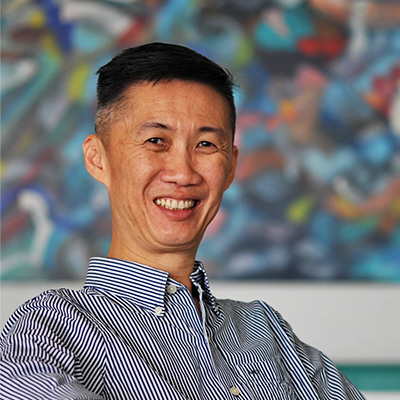AS society picks its way through the aftermath of the pandemic and its ripple effects, some businesses will have to take a different perspective to the altered state of affairs that they could be facing.
Even as the coronavirus continues to mutate and remain in society, countries are behaving differently in terms of how they wish to handle the situation.
The upcoming WED WEB CHAT — Future of Demand: Autos & Ships on 20 July (12:45-1:30pm SGT) discusses the future direction of businesses supporting the shipping and automotive industries.
Panellists for the discussion are Mark Pirie, Vice President, Purchasing & Supplier Management Asia-Pacific at Schaeffler Manufacturing (Thailand) and Daniel Chui, Managing Director, Oceanic Group.
Oceanic Group provides specialised cruise products — from start-up stage to onboard operations and general management — and has operations in China, Hong Kong and Singapore.
The Schaeffler Group has more than seven decades of mobility experience as a global automotive and industrial supplier. Schaeffler manufactures high-precision components and systems, generating sales of EUR 14 billion in 2021, and employs 83,000 workers in 200 locations in over 50 countries.
Differing Approaches And Varying Responses
Singapore is opening up, though mask wearing is still required in some situations. China, in adopting a zero tolerance approach towards the virus spread, is shutting down cities as required. Japan is slowly opening up. Much of the West is trying to return to some semblance of normalcy.
Travel is on the rise, business seems to be flowing. But there’s more going on in the background that will continue to shape the sequence of events to follow.
After more than two years since the onset of the pandemic, many businesses are struggling to recover while some industries are facing a frantic spike as revenge travel, for instance, takes place. The Singapore Airlines Group carried a total of 1,938,200 passengers in June 2022, up 13.7% from the previous month.

“The Covid-19 pandemic has caused a major reset to the entire world,” notes Daniel Chui of Oceanic Group.
The global supply chain has been significantly hampered by the sudden shutdown brought on by the onset of the pandemic. Delays forced by the disruptions are now being sped up to overdue completion. However, the disruptions have put kinks in the logistics chains, which are now trying valiantly to meet increased demands.
Increased fleet sizes of shipping companies — the world fleet continued to grow (6.4% in 2021) — will have a knock-on effect on port services and inland rail and road haulage systems.
The combined effects of the ongoing war in Ukraine, global inflation and the changing behaviour of consumers preferring online shopping to physical malls and working from home instead of an office, will shift the equilibrium point as demand chases supply in the various industries.
But Daniel points out “the window of opportunities always favours the bold and those who are prepared”. He is optimistic about the future.
“The future of demand is already starting and a recovery in 2023/24 may be the fastest in the history of hospitality.”
Mobility Issues
The automotive industry has been rolling through a variety of changes.
From electrification to autonomous vehicles and artificial intelligence, the innovations are already changing our attitudes towards driving.
How will it play out in the future as the role of automobiles becomes one of shared functional mobility and less about car ownership?
The semiconductor crunch has seen some car companies try to juggle inventory and offer less features on some cars as they wait for the supply side of the equation to return to pre-Covid days. Add to this the climate change challenges that demand a new approach to how we treat the natural resources for the future of the planet.

“In these recent dynamic and challenging times, it is even more evident the importance of having a strategic approach with sustainability at the forefront,” says Mark Pirie of Schaeffler.
“Similarly, the growing social awareness of sustainability and climate change has led to new purchasing habits and demands, as we look to reduce our emissions from intermediates and raw materials in the supply chain by 25% by 2030,” he adds.
How will the shipping and automotive industries adapt and change to suit future demands?
Join the WED WEB CHAT on 20 July at 12:45pm (SGT) and get a deeper perspective on the issue of the Future Of Demand: Autos & Ships.
Register via this link: https://zurl.co/2CHe




















